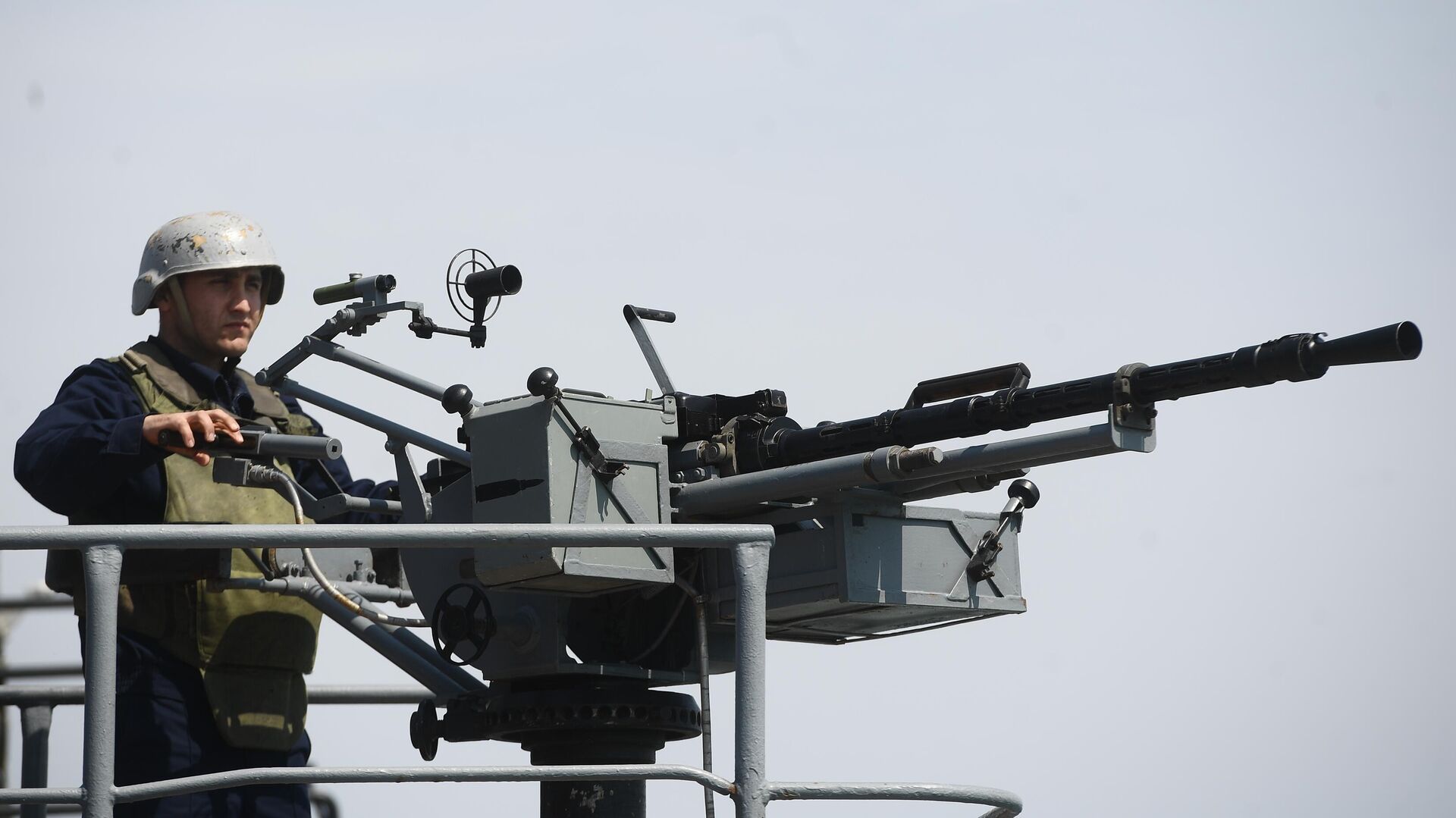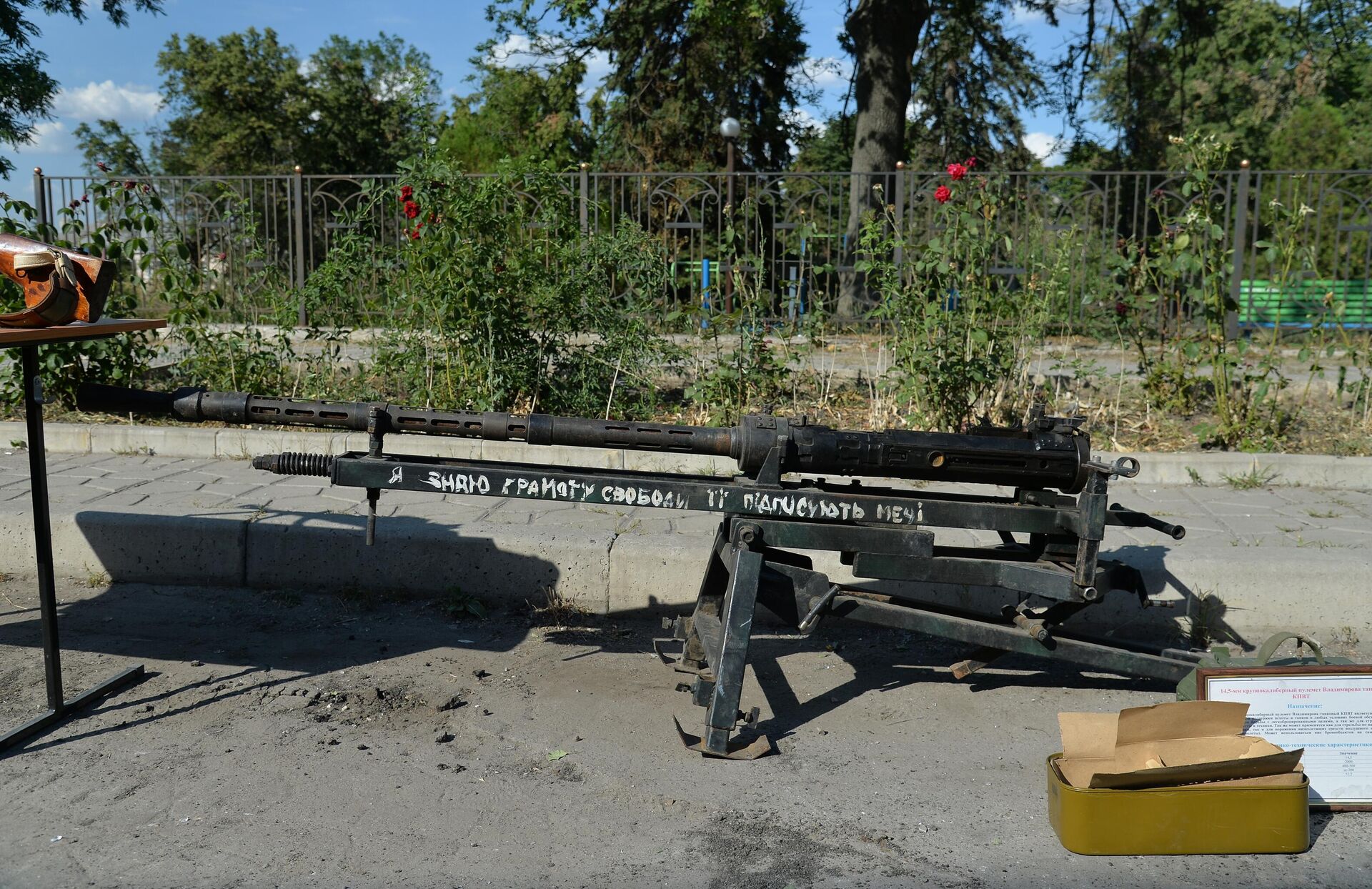https://sputnikglobe.com/20240409/russias-deadly-kpv-75th-anniversary-of-vladimirov-large-caliber-machine-gun-1117831560.html
Russia's Deadly KPV: 75th Anniversary of Vladimirov Large-Caliber Machine Gun
Russia's Deadly KPV: 75th Anniversary of Vladimirov Large-Caliber Machine Gun
Sputnik International
In 1944, Russia invented a weapon that would become one of the most versatile and powerful heavy machine guns in its arsenal - and across the globe.
2024-04-09T15:34+0000
2024-04-09T15:34+0000
2024-04-09T15:34+0000
military
russia
machinegun
weapon
development
history
https://cdn1.img.sputnikglobe.com/img/07e8/04/09/1117832338_0:160:3300:2016_1920x0_80_0_0_cb1838613859ace2ea643a24b04a4cc3.jpg
Vladimirov large-caliber machine gun (KPV) was developed in 1944 during the final months of World War II.Efforts of the Soviet engineers who wanted to determine whether it would be possible to create a heavy machine gun that could fire 14.5mm rounds from anti-tank rifles, a weapon that might help repel mechanized assaults against infantry positions, were successful.KPV was officially adopted by the Soviet military in 1949, with the team behind the machine gun’s creation receiving a state award on April 9 that year.The new two-meter-long belt-fed heavy machine gun weighed 52.3 kilograms and had a rate of fire between 550 and 600 rounds per minute.The KPV could be loaded with many types of 14.5mm rounds, including armor-piercing, tracer and incendiary rounds.While the machine gun’s significant weight limited its use in infantry, KPV saw widespread use as an armored vehicle mount and an anti-aircraft weapon.KPV's modification for armored vehicles, KPVT, was first used as a coaxial weapon and an anti-aircraft mount on tanks before becoming a staple weapon of BTR armored personnel carriers (though the latest modifications of these vehicles are armed with 30mm autocannons instead) and BRDM armored reconnaissance vehicles.It was used in the Soviet Navy as well, where it was mounted on patrol and torpedo boats and trawlers. It was also sometimes installed on civilian vessels for defense against pirate attacks.The machine gun also spawned several anti-aircraft modifications, including twin-linked (ZPU-2) and quad (ZPU-4) versions. One of these models, ZGU-1, saw extensive use by the North Vietnamese forces during the Vietnam War.The machine gun’s considerable stopping power did not escape the attention of militant groups around the globe so this weapon could be encountered in various conflict zones, either as a turret mount or installed on pickup trucks.
russia
Sputnik International
feedback@sputniknews.com
+74956456601
MIA „Rossiya Segodnya“
2024
Sputnik International
feedback@sputniknews.com
+74956456601
MIA „Rossiya Segodnya“
News
en_EN
Sputnik International
feedback@sputniknews.com
+74956456601
MIA „Rossiya Segodnya“
Sputnik International
feedback@sputniknews.com
+74956456601
MIA „Rossiya Segodnya“
kpv, kpvt, russian heavy machine gun, russian weapons, russian machine gun
kpv, kpvt, russian heavy machine gun, russian weapons, russian machine gun
Russia's Deadly KPV: 75th Anniversary of Vladimirov Large-Caliber Machine Gun
In 1944, Russia invented a weapon that would become one of the most versatile and powerful heavy machine guns in its arsenal - and across the globe.
Vladimirov large-caliber machine gun (KPV) was developed in 1944 during the final months of World War II.
Efforts of the Soviet engineers who wanted to determine whether it would be possible to create a heavy machine gun that could fire 14.5mm rounds from anti-tank rifles, a weapon that might help repel mechanized assaults against infantry positions, were successful.
KPV was officially adopted by the Soviet military in 1949, with the team behind the machine gun’s creation receiving a state award on April 9 that year.
The new two-meter-long belt-fed heavy machine gun weighed 52.3 kilograms and had a rate of fire between 550 and 600 rounds per minute.
The KPV could be loaded with many types of 14.5mm rounds, including armor-piercing, tracer and incendiary rounds.
While the machine gun’s significant weight limited its use in infantry, KPV saw widespread use as an armored vehicle mount and an anti-aircraft weapon.
KPV's modification for armored vehicles, KPVT, was first used as a coaxial weapon and an anti-aircraft mount on tanks before becoming a staple weapon of BTR armored personnel carriers (though the latest modifications of these vehicles are armed with 30mm autocannons instead) and BRDM armored reconnaissance vehicles.
It was used in the Soviet Navy as well, where it was mounted on patrol and torpedo boats and trawlers. It was also sometimes installed on civilian vessels for defense against pirate attacks.
The machine gun also spawned several anti-aircraft modifications, including twin-linked (ZPU-2) and quad (ZPU-4) versions. One of these models, ZGU-1, saw extensive use by the North Vietnamese forces during the Vietnam War.
The machine gun’s considerable stopping power did not escape the attention of militant groups around the globe so this weapon could be encountered in various conflict zones, either as a turret mount or installed on pickup trucks.



